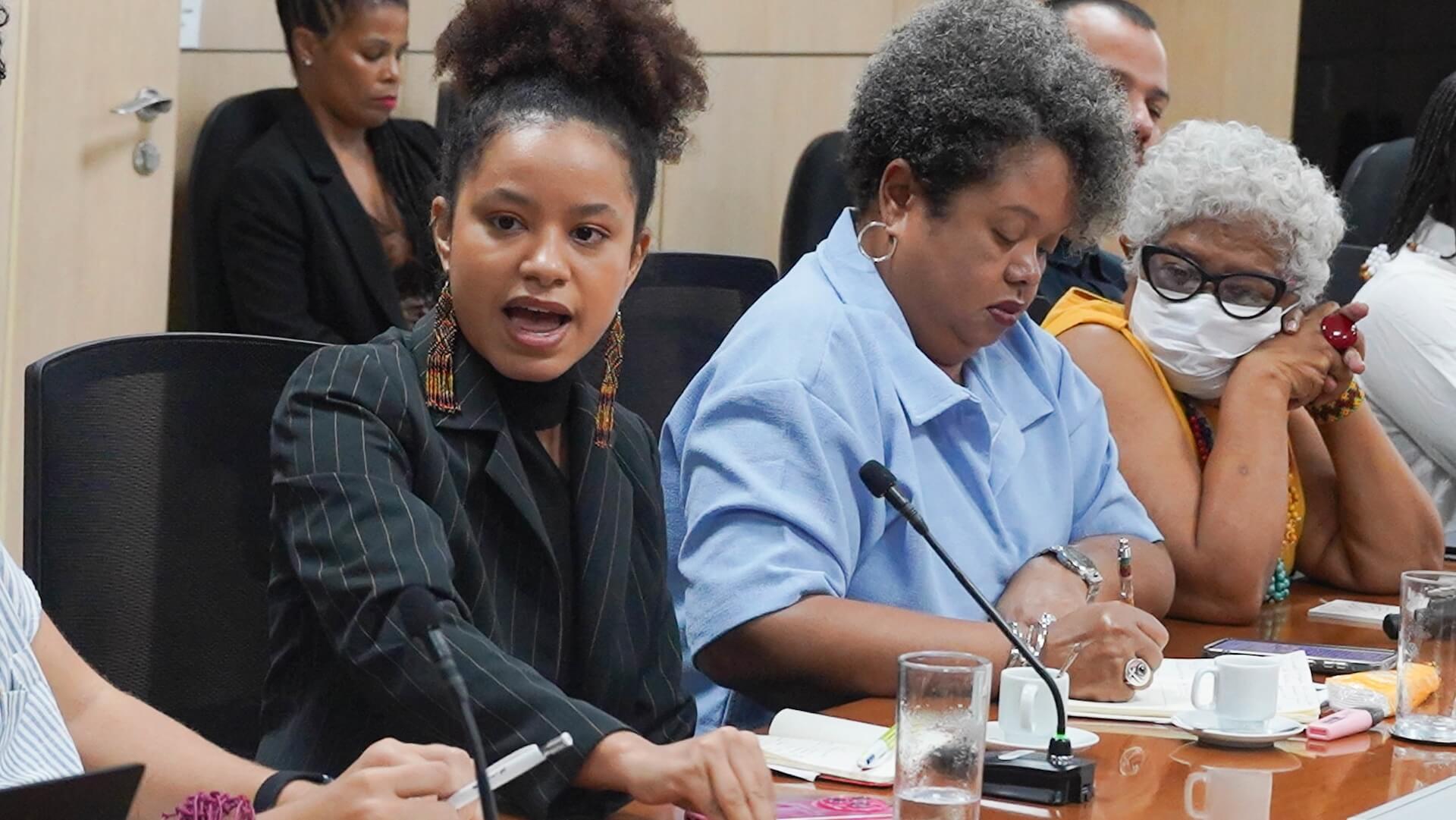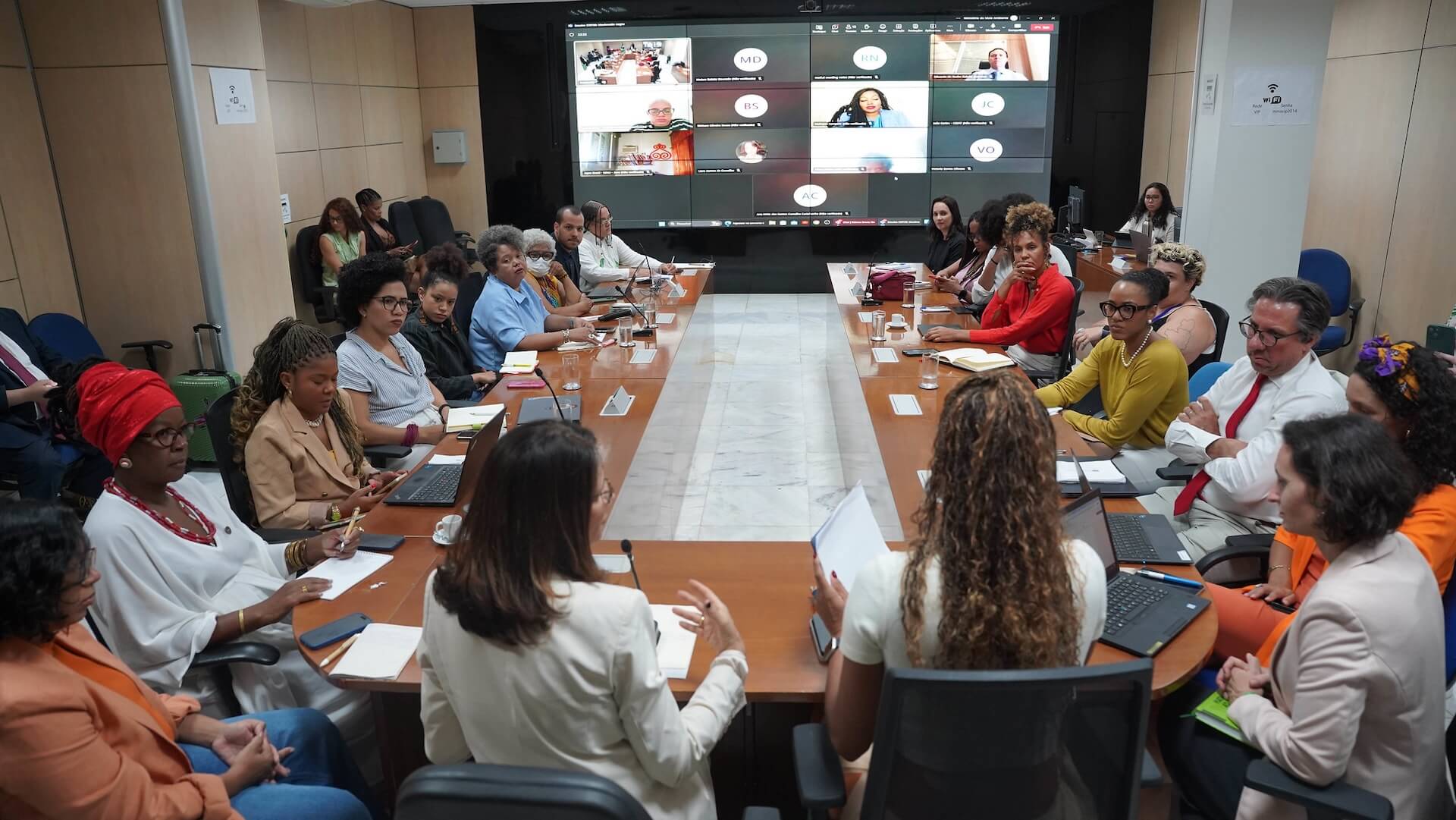Representatives of Brasil's Black Movement outline their contributions to the COP30 agenda
The meeting discussed, among other things, the role of the Black community in the climate conference to be held in Belém, the capital of Pará, in November.

From Brasil's Ministry of the Environment and Climate Change (Ministério do Meio Ambiente e Mudança do Clima/MMA)
On April 9 (Wednesday), representatives of the Brazilian Black Movement presented their contributions and expectations for COP30. The meeting was another step in the process of setting the agenda for the United Nations Climate Change Conference that will take place in Belém (state of Pará) in November, 2025.
The meeting was held in Brasilia (DF) by the Brazilian COP30 Presidency, together with the Ministries of Environment and Climate Change (Ministério do Meio Ambiente e Mudança do Clima/MMA) and Foreign Affairs (Relações Exteriores/MRE) and the General Secretariat of the Presidency of the Republic (Secretaria-Geral da Presidência da República/SGPR). The MMA's National Secretary for Climate Change and Executive Director of the conference, Ana Toni, led the discussions alongside the Minister for Racial Equality, Anielle Franco.
As part of the preparations for COP30, discussions have already taken place with representatives of indigenous peoples, traditional peoples and communities, as well as federal parliamentarians. Dialogues with other sectors of society are planned for the coming months.
"The issue of race must not only appear in the negotiations, which is crucial, but also in the other pillars of COP30, such as the action agenda," said Ana Toni, referring to the role of Afro-descendant communities in the global fight against climate change. "COP30 should launch a decade of implementation. We need to think about how to operationalize climate justice and combat environmental racism. Your help is essential for this," she added.
"It is important to consider the movement's demands and claims together in order to find a fair way to tackle the effects of climate change," said Anielle Franco.
Issues such as adapting to the impacts of climate change and promoting a just transition, with a focus on sustainable development and the inclusion of a racial perspective, were highlighted by the Black Movement. The representatives also expressed a desire for the Brazilian government to demonstrate a greater commitment to climate action that involves combating racism and strategies that consider racial specificities in international negotiations.
It is also interesting to note that the racial debate space created during the 2024 COP16 of the Convention on Biological Diversity (CBD) in Cali, Colombia, was referenced as an example of Brasil's role at COP30.
Through a joint effort of Minister Marina Silva and the then-Colombian Minister of the Environment and President of COP16, Susana Muhamad, the signatory countries recognized, for the first time, the importance of Afro-descendants in the preservation of biodiversity, inserting the term "Afro-descendants" in the official documents of the conference. This was a historic achievement for the communities.

Environmental racism
Data from the second quarter of 2024 from IBGE's Continuous National Household Sample Survey (Pesquisa Nacional por Amostra de Domicílios Continuada/PNAD Continuada) highlights that the black community represents 56.7% of the Brazilian population.
Pointing out that 82% of this population lives in urban areas, Mônica Oliveira, from the Operational Secretariat of the Black Coalition for Rights (Secretaria Operacional da Coalizão Negra por Direitos), stressed the importance of recognizing racial inequalities in the construction of climate policies. She explained that, in Brasil's urban centers, environmental racism has an impact on the lives of the population living in the favelas and peripheries.
“If 82% of our population is urban, the treatment and strategies are different. We hope that the Brazilian government will consider the demands of this movement, that never refuses to collaborate,” she said.
Environmental racism disproportionately impacts black communities in slums and urban peripheries, as well as indigenous and quilombola communities. The inability to access essential services and adequate infrastructure intensifies the effects of climate change and affects quality of life, while the violation of territorial rights perpetuates historical inequalities and socio-environmental conflicts.
Actions to tackle environmental racism include formulating public policies that consider social and economic inequalities, ensuring the participation of impacted communities in decision-making processes, promoting environmental education, and recognizing traditional knowledge.
In August 2023, the federal government set up the Committee for Monitoring the Black Amazônia and Tackling Environmental Racism (Comitê de Monitoramento da Amazônia Negra e Enfrentamento ao Racismo Ambiental). The initiative, developed in partnership between the MMA and the Ministry of Racial Equality (Ministério da Igualdade Racial/MIR), aims to propose measures to tackle environmental racism in the Legal Amazônia.
English Version: Trad. Bárbara Menezes
Proofreading by Enrique Villamil

